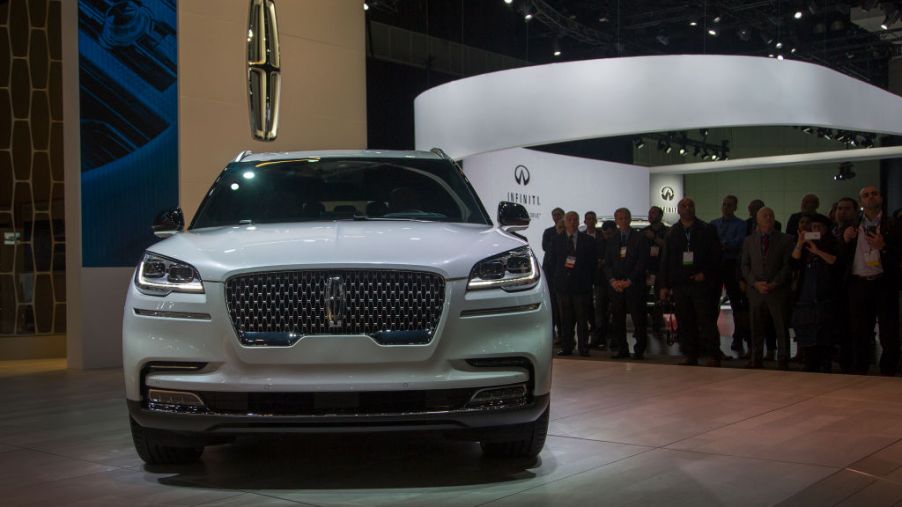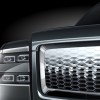
Can the 2020 Lincoln Aviator Even Compare to the Audi Q7?
As the SUV craze continues and vehicles become increasingly luxurious, the luxury midsize SUV segment has become fiercely competitive. There are several fantastic choices within the class, but two are especially intriguing: The 2020 Lincoln Aviator and the 2020 Audi Q7.
In their own ways, the Aviator and the Q7 are both all-new this year. The Lincoln Aviator was first produced from 2003-2005, and it was reintroduced in 2020 after being unveiled at the 2018 New York Auto Show. The Q7 was fully redesigned for 2020, making the already impressive SUV even better in every measurable way.
The Lincoln Aviator is back and better than ever, but is it good enough to truly rival the Audi Q7?
The 2020 Lincoln Aviator: the Comeback Kid
Lincoln was determined to have the Aviator appeal to virtually everyone, and one of the ways the company did that was by making it a plug-in hybrid vehicle (PHEV). Not just any PHEV, but Lincoln’s first — ever.
Validating the automaker’s efforts, U.S. News called the Aviator “well-rounded,” citing its “handsome interior, user-friendly technology, and plenty of engine power.”
That power comes from a 3.0-liter twin-turbocharged V6 engine with 400 hp in gasoline models and an even more robust V6 in hybrid models. The PHEV’s engine pairs with a 13.6-kWh battery to put out 494 hp.
Inside, the Lincoln Aviator has an enormous amount of cargo space, three rows of seating, and tons of standard features. Among them are a user-friendly 10.1-inch touchscreen infotainment system, a 5.8-inch second-row touchscreen for climate and audio controls, heated front seats, and wireless charging. The Lincoln Co-Pilot360 suite of advanced safety features also comes standard on the 2020 Aviator.
While the Aviator’s interior is cavernous and certainly upscale, the front seats are curiously narrow, and there’s a notable use of some hard plastics, slightly detracting from the cabin’s overall plushness. These aren’t tremendous issues, but in this segment, it’s the small details that make a big difference.
Quintessential luxury: the 2020 Audi Q7
In sharp contrast to the relative newcomer Lincoln Aviator, the Audi Q7 is a perennial award-winning luxury SUV veteran. The Q7 has been named to Car and Driver’s 10Best Trucks and SUVs list several times and has earned a Kelley Blue Book Best Buy Award.
To that point, the 2020 Q7 has one of the most refined interiors in its class, with premium finishes and outrageously comfortable seats. It’s also loaded with cutting-edge technology and safety features, including new-for-2020 dual touchscreens. One controls navigation and audio, and the other controls climate and other interior settings.
Audi is known for making vehicles that handle exceptionally well, and the Q7 is no different. It’s agile and athletic, but its luxurious touches make the ride plenty cushioned. True driving enthusiasts may want to seriously consider the new sporty SQ7 trim, with a 4.0-liter twin-turbo V8 that has 500 hp.
If you absolutely had to choose an area where the Audi Q7 doesn’t shine, its third-row seats are on the small side. The previously-mentioned U.S. News review of the Lincoln Aviator plainly stated that “aside from cramped third-row seats, it has virtually no weaknesses.”
The Lincoln Aviator & Audi Q7 head-to-head
Both the 2020 Lincoln Aviator and Audi Q7 are excellent luxury midsize SUVs. The differences are minimal, so if you’re deciding between the two, it ultimately comes down to personal preference.
The Q7 is a bit narrower and shorter height-wise than the Aviator, so it has slightly less head- and legroom as well as storage space. To be fair, very few competitors top the Aviator in terms of cargo capacity, which is one of the main reasons to consider it. The base models in both come with nearly identical standard features and equipment, though the Audi Q7’s interior is made with slightly higher-quality materials.
Price-wise, the Lincoln Aviator starts at $51,100, while the Audi Q7’s starting MSRP is $54,800. However, a top-of-the-line Aviator will run you $77,695, while a fully-loaded SQ7 can approach $100,000. It’s worth noting that the Q7 comes standard with all-wheel drive, but the Aviator upcharges for that option.
Finally, drivers committed to having a PHEV will, unfortunately, have to rule out the Q7. As Car and Driver reports, there is a hybrid Audi Q7, but only for European markets.


